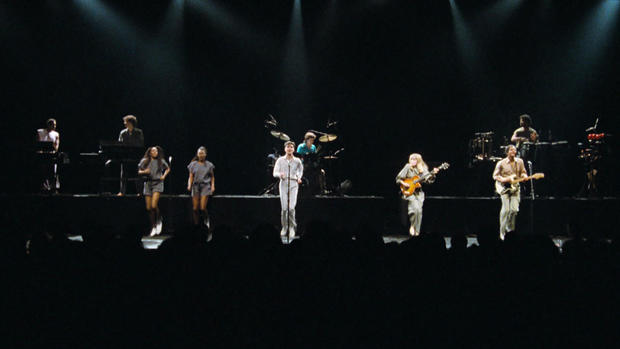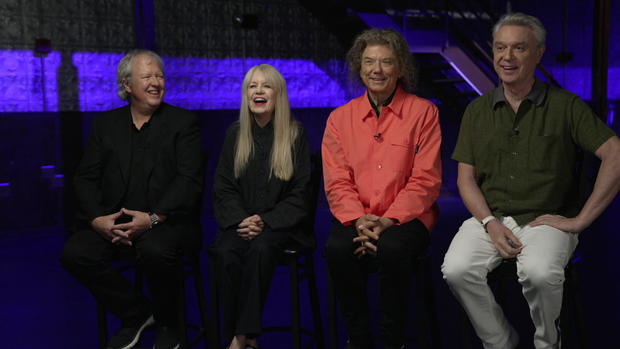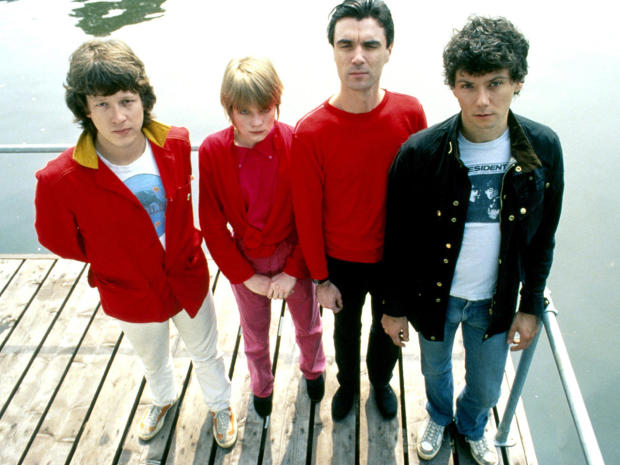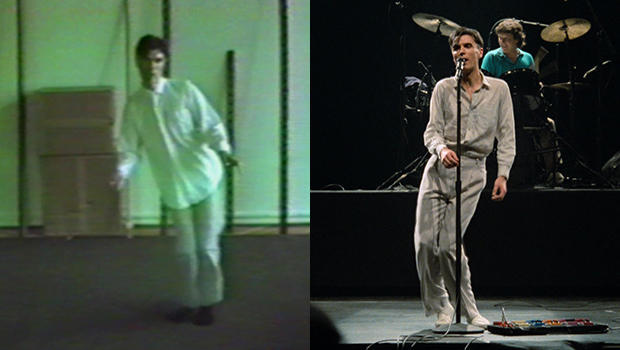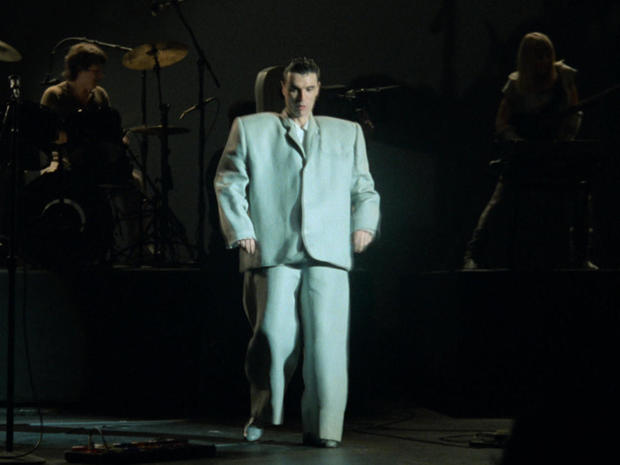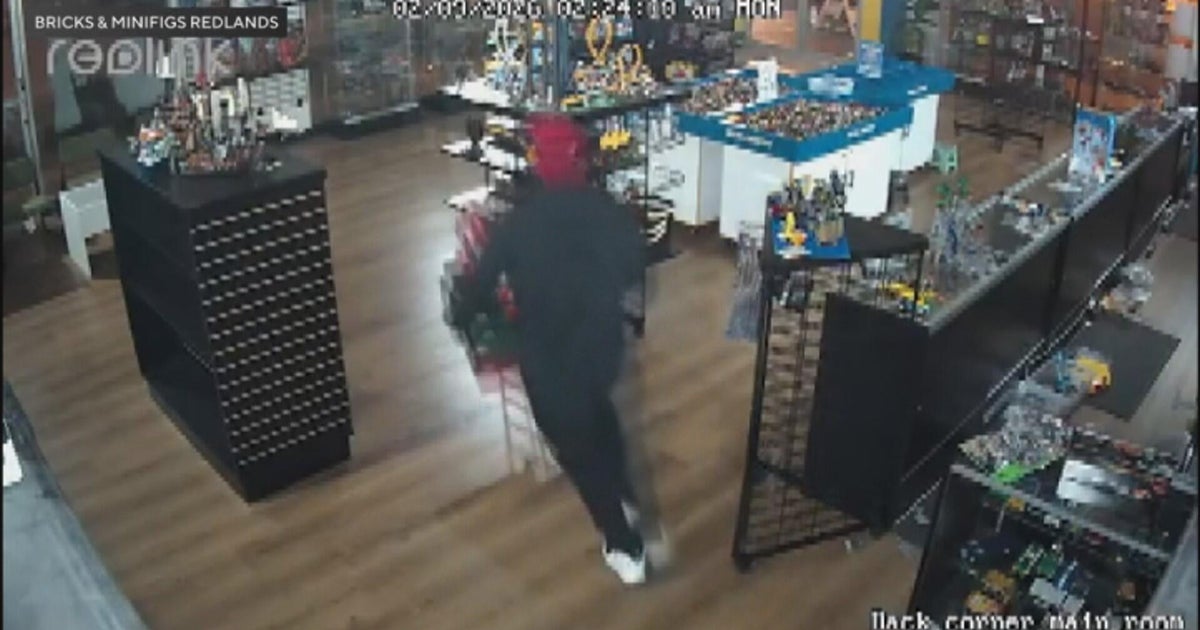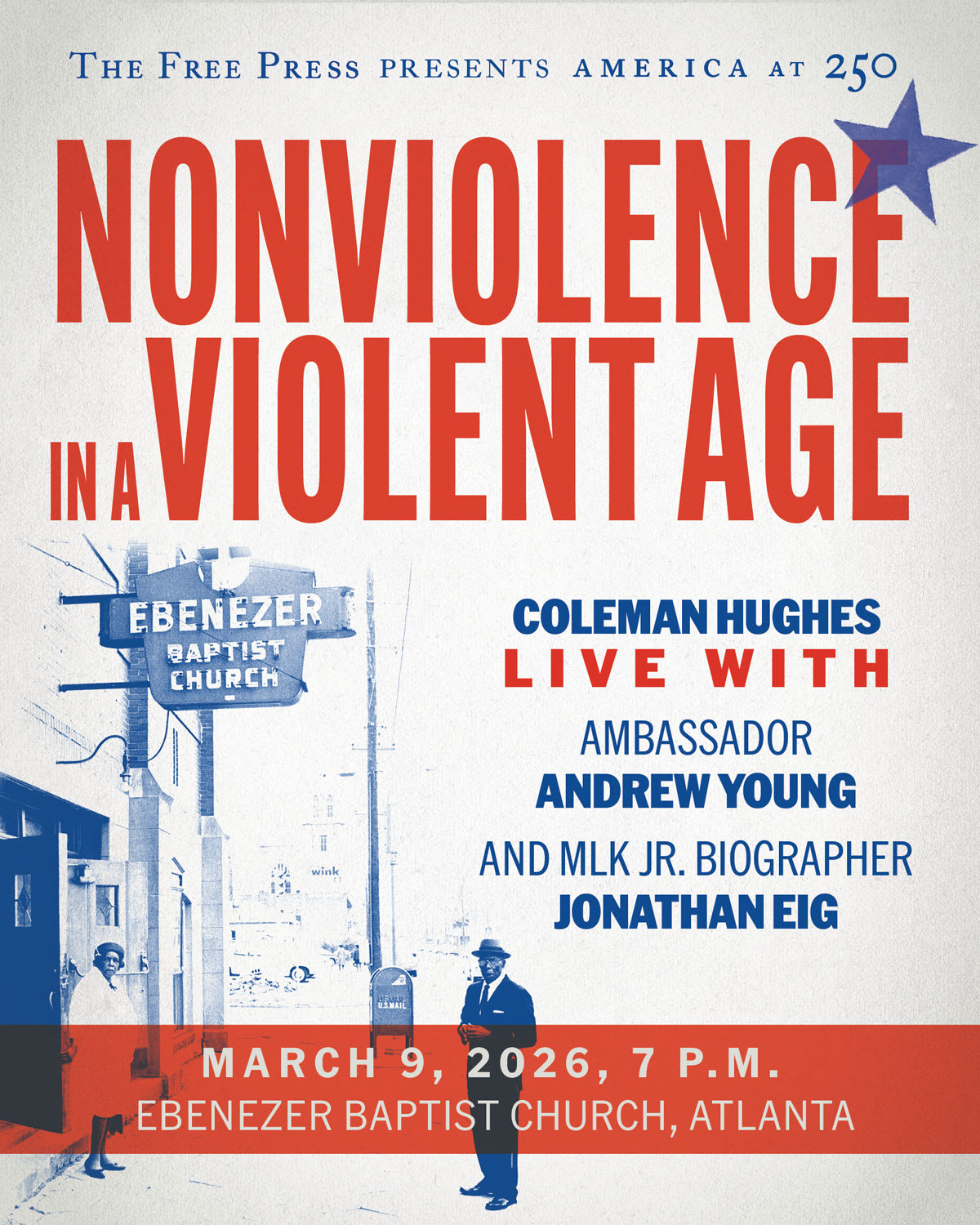A Talking Heads reunion for the return of "Stop Making Sense"
In 1983 a band whose cerebral lyrics and funky melodies helped define an era performed in L.A. before a packed house, and some cameras. The film that followed, called "Stop Making Sense," captured Talking Heads in all their kinetic glory … and, through the eye of a talented young director named Jonathan Demme, recorded what would become the band's final tour, an experience the late Roger Ebert called "life being lived at a joyous high."
Four decades after its initial release, this classic concert film has been restored, remastered in 4K, and is once again being shown on the big screen – same as it ever was, or maybe better. Critic Jon Pareles of The New York Times called it "nutty jubilation."
David Byrne said, "When I first saw this, a screening recently (it had been probably a couple of decades), and I saw myself, and I thought, 'Oh, who is that guy?'"
"Weren't we pretty?" said Chris Frantz. "I mean, let's face it, man. This movie is hot!"
To watch a trailer for the restoration of "Stop Making Sense" click on the video player below:
For the members of Talking Heads - guitarist-keyboardist Frantz, front man Byrne, bassist Tina Weymouth and drummer Jerry Harrison - the re-release is a chance to get reacquainted after decades of estrangement, and also revisit a moment of shared success.
When asked what the story of "Stop Making Sense" is, Weymouth offered, "It's the story of love. It really is. It starts with one person, an individual alone in this world, and then a community builds around it."
The arc of the film mirrors the arc of the band itself. There's Byrne, the first on stage, performing "Psycho Killer." Then, his two married college friends, Weymouth and Frantz, join him to perform "Heaven" and "Thank You for Sending Me an Angel." Harrison then steps in for "Found a Job."
The film continues with some of Talking Heads' most famous songs: "Burning Down the House," "Life During Wartime," "Once In a Lifetime."
Byrne, Frantz and Weymouth had met as students at the Rhode Island School for Design, where Byrne and Frantz had already formed a cover band called The Artistics. "We both really enjoyed it," said Frantz. "I could see that David had a gift as a front person."
Weymouth recalled, "I heard stories from Chris: 'Oh, yeah, that's Mad Dave.' He would do things, you know, performance art where he would shave off half his beard vertically."
They moved to New York and started performing under the name Talking Heads. Jerry Harrison made the band a foursome. "I thought, 'Boy, these guys are unique,'" Harrison said. "I bought into totally what they were doing. And I just wanted to be the best partner in making that go forward."
The band spent the years that followed building an audience on MTV and perfecting their sound.
And you may find yourself living in a shotgun shack,
And you may find yourself in another part of the world,
And you may find yourself behind the wheel of a large automobile,
And you may find yourself in a beautiful house, with a beautiful wife,
And you may ask yourself, "Well, how did I get here?"
Letting the days go by, let the water hold me down,
Letting the days go by, water flowing underground,
Into the blue again, after the money's gone,
Once in a lifetime, water flowing underground.
"Once In a Lifetime" (1980)
Frantz said, "By the time we got to 'Stop Making Sense' with the expanded lineup, we were really tearing the roof off."
And doing a lot of running. Byrne said, "The music that we were doing had great groove, and it just made me wanna dance."
Byrne explained the origins of his quirky stage movements: "The music usually inspires it, but it was improvised. like, in my loft," he said. "I'd have a little video camera or whatever and put on the music and see what I came up with. And then I'd go, 'That one. That really works. Let me try that. And let me try it in this song.'"
Dokoupil asked, "How do you know it works?"
"That's a really good question!" Byrne laughed. "All I can assume is that there's something intuitive that says, 'That music and that movement belong together.' And somehow together they say something greater than either of them apart."
Harrison said it was obvious that what people were witnessing was people on stage having a great time. "We were a locked band," he said.
Call it peak Talking Heads, but it wouldn't last. The film captured what was their last tour.
Why? "Well, that is a mystery," Frantz said.
Talking Heads had always taken breaks for side projects, most notably Frantz and Weymouth's band, Tom Tom Club. But within a few years of the film, the band went on a break that never really ended. And in 1991, Byrne told the Los Angeles Times, "You could say (we've) broken up, or call it whatever you like."
That, said Weymouth, was how they found out, when a newspaper fact checker called for a comment.
The relationship suffered from there. At one point Weymouth called Byrne a "vampire." "That's what they say; I don't remember that," she said. "I might have been in a bad mood."
The band did perform one last time in 2002, when they were inducted into the Rock & Roll Hall of Fame. Frantz thanked the Hall of Fame "for giving this band a happy ending."
Talking Heads perform "Life During Wartime" at the 2002 Rock & Roll Hall of Fame Induction Ceremony:
But they had not appeared in public since, until this month's premiere of the restored concert film brought them together.
Dokoupil asked, "It's natural to feel pride in the legacy, and joy in the memories, but inevitably you also ask yourself the question, 'Would I do anything differently?' Would you do anything differently, David?"
"I think I could have been probably a more easygoing collaborator," Byrne replied. "But, at the same time, that was kinda the way we were. The way I was. And so it's not like, 'Oh, I wish I coulda changed that.' I think that's just the way we were then, and it kind of had to happen that way."
"Do you feel like over the years you guys, in one way or another, hurt each other?"
"Families do that," Weymouth replied. "They don't just, you know, bite each other. They take chunks out! But the beauty of it is, well, maybe you don't forget, but you forgive."
Frantz added, "We're celebrating 'Stop Making Sense,' but also the music that we made together, which is always gonna be greater than any of us individually. It is something for us to be proud of. And I think we all agree on that."
For more info:
- "Stop Making Sense" in IMAX theaters exclusively for one week beginning September 22; in theaters everywhere September 29 | IMAX engagements | Ticket info
- Talking Heads (Official site)
- David Byrne
- Chris Frantz on Instagram
- Tina Weymouth @ Tom Tom Club
- Jerry Harrison on Instagram
Story produced by Reid Orvedahl. Editor: Remington Korper.
See also:
- Jerry Harrison on the 4K remastering, Dolby Atmos and IMAX presentations of "Stop Making Sense" (Indiewire)
- David Byrne on Talking Heads and following his own beat ("60 Minutes")
- David Byrne on "American Utopia," and living an optimistic life ("Sunday Morning")
- David Byrne on rock musical "Here Lies Love" ("Sunday Morning")

